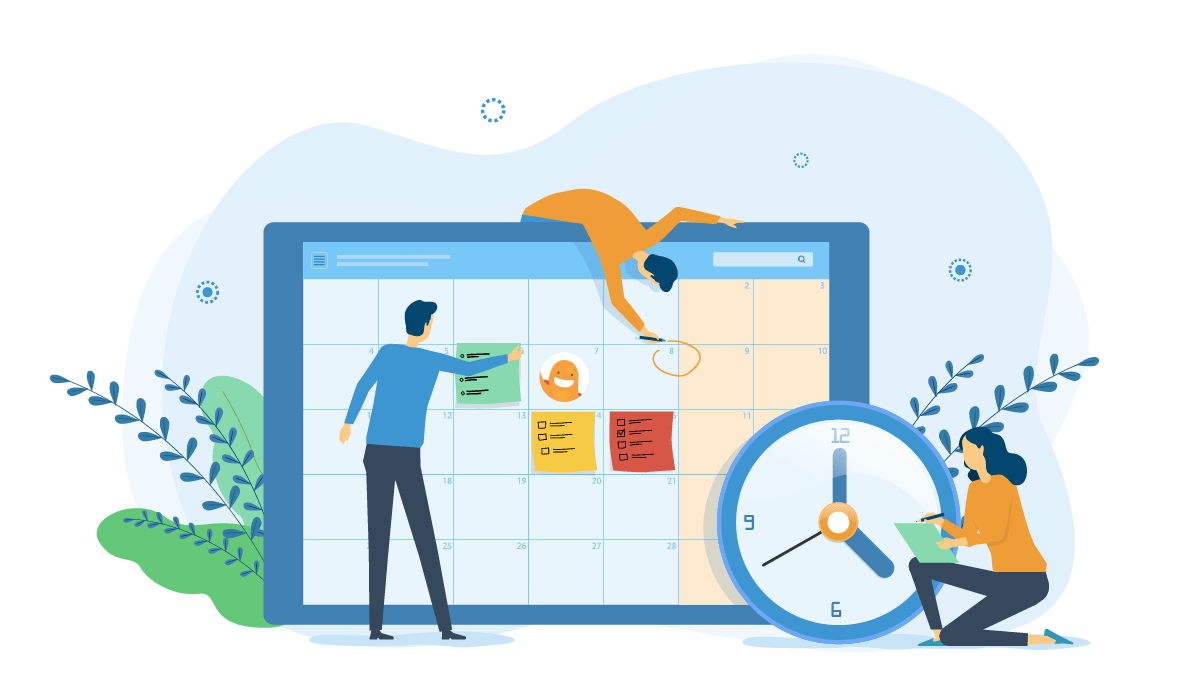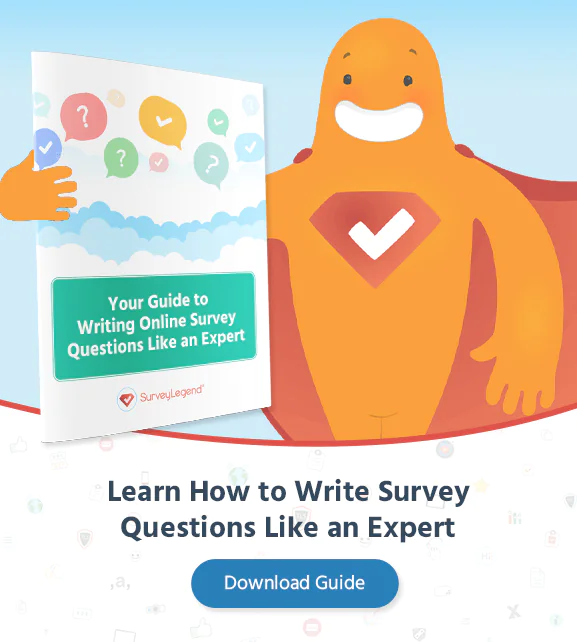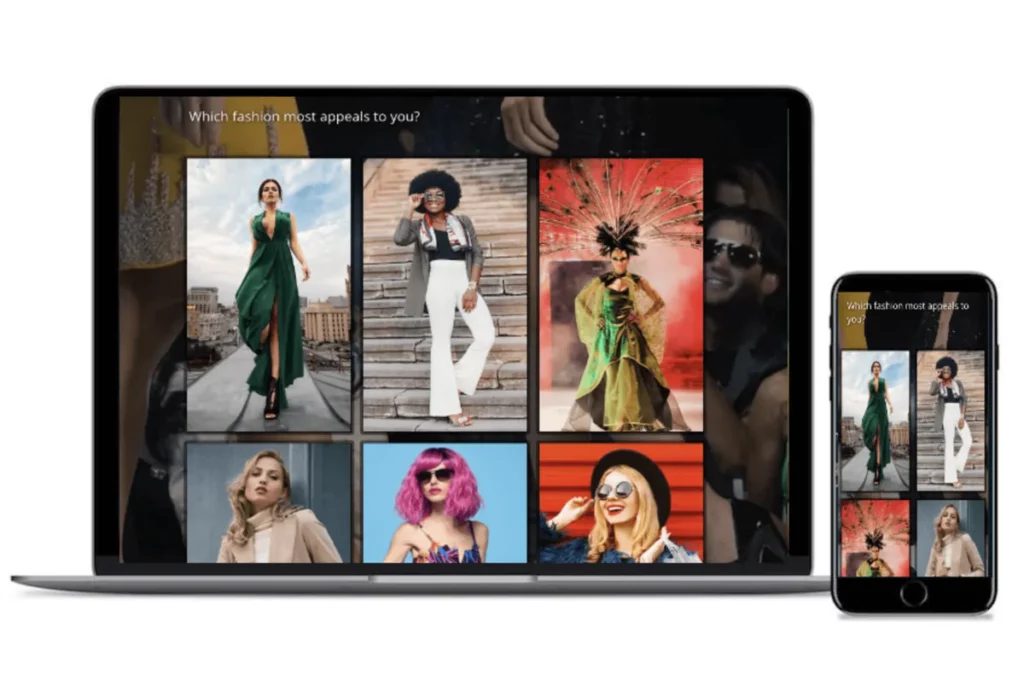Whether you’re planning a corporate conference, a hobbyist convention, an outdoor music festival, or an indoor party, event planning requires a lot of organizational and time-management skills. And, it doesn’t really matter if it’s a wedding with 100 attendees or a concert with 100,000 – every attendee wants the event to be a memorable experience. One way you can meet the needs of attendees, and help yourself as an event planner, is to use event planning surveys.
Create your event planning survey, poll, or questionnaire now!
Importance of an Event Planning Survey
From initial planning to post-event initiatives, event surveys help you put together successful events, providing a successful beginning and bringing them to a satisfying conclusion. Of course, many event planners start with a vision, outlining what outcomes they’d like to achieve and how they’ll go about accomplishing them. However, it’s important to also solicit information for attendees.
Far too often, event planners get so focused on their vision that they fail to meet the expectations of the event attendees. If it’s a one-time event, like a wedding, this can result in an unhappy couple sure to leave bad reviews and spread negative word-of-mouth; if it’s an annual event, unsatisfied attendees will likely not return the following year, damaging sales.
Types Of Event Survey Questions
Before you begin planning your event survey questions, you should know about the three most common types of questions to ask.
- Quantitative. These are numbers-driven, NPS-style questions that ask quantifiable questions (e.g., how would you rate this event on a scale of 1-5). This works best for events with a large number of people and helps you generate useful statistics later.
- Qualitative. These are open-ended questions that help you gain insight into specific experiences and thought processes that can then be turned into quantifiable data (e.g., 25% of attendees complained about audio, but of these 20% were seated far from the stage).
- Binary. This is a Yes/No checkbox type of question which can collect additional quantitative data or be used to handle administrative tasks (e.g., may we contact you in the future about further events?)
Be sure to check out our guide, How To Write Survey Questions Like An Expert, for more information!
Event Planning Survey Questions (Before, During, and After the Event)
So what types of questions should you ask attendees? We recommend a pre-event survey and a post-event survey; depending on the event, you may also solicit responses during the event. Here are some things to consider.
1. Pre-Event Planning Survey Questions
When planning an event, you must consider what attendees and participants expect in order to put on a show that matches their expectations. The best way to do this is to simply ask in a pre-event survey. Now, this may not be something you need for say, a wedding (that’ll be up to the bride and groom, and perhaps their immediate family). But for corporate events and large social gatherings, it can really help you assess your audience’s expectations. Then, you can create a program that is of value to them. Below are some topics and questions to consider asking in regards to them.
Timing
If it’s not an all-day event, or an event spanning a few days or even a week, you may want to ask if attendees have a time preference.
- Would a morning, afternoon, or evening event be best for you?
Travel
Depending on the event, some potential attendees may only be willing to travel a certain distance. This is important to know because it can impact where you hold the event (if you want a big turnout, for example, you may need to keep it close to home).
- Are you willing to travel to attend this event?
- How far are you willing to travel to an event?
- Can you stay overnight if necessary?
Content
Give attendees input into which topics they’re most interested in hearing about. This will ensure they’re engaged during the event.
- Which of these topics interests you most? (followed by a list of topics)
- Are there any additional topics you’d like us to cover?
Speakers
Many events have a keynote speaker or various presenters. You may wish to see who your audience is most interested in hearing from. They may even have suggestions on who they’d like to hear from, or may volunteer as a speaker themselves, which can make planning even easier!
- Who from this list would you most like to hear from at the event (followed by a list of potential speakers)
- Do you have any suggestions or recommendations for potential speakers?
Entertainment
Depending on the type of event you’re putting on, entertainment needs can vary wildly. Once again, it doesn’t hurt to reach out to attendees
- Which type of entertainment do you prefer? (for example, table teams, gamification, networking, after-hours party, crowd polling, etc.)
- Do you prefer a DJ, live band, or neither?
Venue
Sometimes holding an event is all about location, location, location! You may want to ask attendees
- Do you prefer an outdoor or indoor event?
- Which hotel do you prefer when we hold this event? (followed by a list of hotels)
- Do you have another location you’d recommend we consider?
Catering
It used to be easy to select a few dishes and serve them up, but today people have more specific dietary needs. You can ask your audience in advance and plan appropriately so no one feels unaccounted for.
- Do you have food allergies or sensitivities we need to consider?
- Are you vegetarian or vegan?
- Do you have any dietary restrictions?
2. During Event Surveying
For some events, such as a corporate conference, it can often be difficult to keep attendees engaged without handing out prizes like a game show. One way to encourage participation and keep attendees involved is through surveys! There are a few ways to do this.
- Survey attendees before the event and let them know the results will be shared during the upcoming event. As the event nears, their anticipation will grow as they look forward to hearing what others had to say.
- Conduct a short survey or quick poll during your event. You could create a survey and use a kiosk or computer station in the event area to have participants complete during the day. Use this survey to ask attendees about issues pertaining to the event topic, industry, or their interests. Share results throughout the day to hold attendees’ interest. These polls further engage attendees because they know they’ve contributed to the event in a small way.
- Integrate online polls into the event using polling apps, devices, and plugins that work with attendees’ mobile phones. This can provide real-time results that can be displayed right on the presentation screen.
3. Post-Event Planning Survey Questions
As an event planner, your job isn’t over as soon as the event is! After the event, it’s important to evaluate event performance. Collecting feedback from attendees is a crucial step for gaining an accurate assessment of your event’s strengths and weaknesses. You’ll want to ask attendees what they thought about the overall event, the content, the speakers, the venue, the catering, and so on. You can use quantitative, qualitative, and binary questions such as:
- How would you rate this event overall?
- Did you find the content presented valuable?
- What is one thing that you loved about this event?
- What is one thing that could have been improved?
- Would you recommend this event to a friend or colleague?
- Would you attend a similar event in the future?
Pro Tip: Email your post-event survey as soon as possible. You want to collect information from attendees when the event is still fresh in their minds, otherwise, your data could be skewed.
Should You Host a Virtual or Live Event?
Even before COVID made virtual meetings and events a necessity, this question is one that many event planners have been wrestling with for a while. In a 2019 survey, 33% of marketers stated that their company has hosted a virtual event and 70% of these respondents said that they plan to hold more in the future.
Why the sudden growth of virtual events (other than COVID)? Virtual events bring the event to attendees, allowing them to be present without the inconveniences and expenses of travel. Of course, the event survey also revealed that the majority of respondents still preferred to attend an event in person, but this could be due to their unfamiliarity with online events.
If you’re planning to host a virtual event or considering one, here’s a handful of questions you may want to ask potential attendees:
- Have you ever attended a virtual event?
- Would you be interested in attending our event virtually?
- Do you think it would be better to hold this event in person?
- If no, why do you think it would be better to do a virtual event? (Lingering COVID concerns, travel expenses, etc.)
- Are you able to easily connect to a virtual event with your existing computer equipment?
Read more about virtual event planning in our blog, How to Plan Virtual Events Using Event Surveys.
Conclusion
To ensure your events go off without a hitch, it’s important to maintain an attendee-first mentality. In other words, you shouldn’t choose things you’ll think the audience will like, but should actually ask them what they’re expecting through event surveys. These work for in-person and virtual events, and can be conducted before, during, and after the event for the most impact! Ready to get started with your event survey? SurveyLegend has beautifully pre-designed event planning survey templates that you can use to gain insight and feedback into your next event. Get started today!
Do you conduct event planning surveys? Are you holding more virtual events than in the past? Let us know how your event planning business is doing in the comments!
Create your event planning survey, poll, or questionnaire now!
Frequently Asked Questions (FAQs)
An event planning survey is used by planners for in-person and virtual events to gain insight and feedback into the needs and expectations of attendees.
Generally, surveys should be conducted before, during, and after an event. By conducting a pre-event survey, you can gain an understanding of attendee expectations. With surveys during the event, you can keep them engaged. And with post-event surveys, you can discover strengths to build upon for your next event and weaknesses to improve upon.
Quantitative (numbers driven), qualitative (open-ended questions), and binary (yes/no questions).




